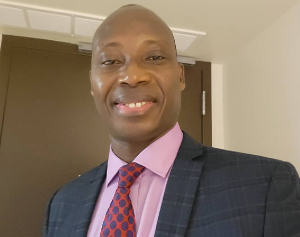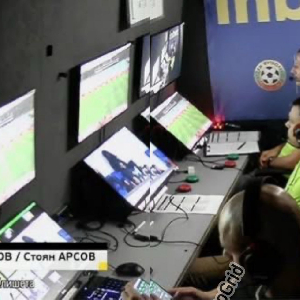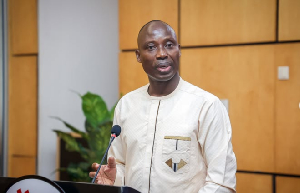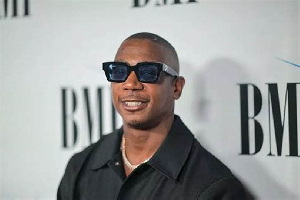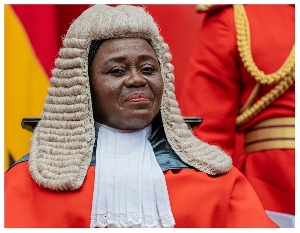It is extremely interesting to hear the former president and the 2020 flagbearer of NDC, Mr John Dramani Mahama, evocatively implying that Ghanaians are not happy with Akufo-Addo’s leadership style, which has allegedly led to high socio-economic standards of living.
If we draw an adverse inference on the Mahama’s seemingly isolated assertion, we can then conclude that the 56% of electorates were not happy with former President Mahama, and hence showing him the exit in the 2016 general elections.
Dearest reader, if you would recall, prior to the 2008 and 2012 general elections, Ex-President Mahama and NDC gave a slew of Manifesto promises to Ghanaians. But as to whether they honoured those promises, is a million dollar question.
During the 2008 and 2012 electioneering campaigns, Mahama and NDC gave a cornucopia of Manifesto promises, inter alia, one-time NHIS premium, free SHS, ‘making dumsor a thing of the past, putting money in Ghanaians pocket, creating more jobs for the jobless, stabilising the economy, protecting Ghanaians from the menaces of galamsey and Fulani herdsmen, bringing an end to dubious judgement debt payments, fighting the rampant bribery and corruption, amongst others.
Regrettably, after giving all those richly interesting, albeit unrealistic promises with a view to deceiving Ghanaians for their mandate, the NDC government, led by former President Mahama, as expected, wilfully failed to honour the promises, and, consequently, a total of 55.6% (44.4% for Mahama) of the electorates rightly voted them out of power in 2016.
Mind you, there have been numerous NDC’s broken Manifesto promises, but the one that has ineffaceably stencilled on discerning Ghanaians mental sheets, is the one-time NHIS premium.
The NDC’s Manifesto promise of one-time NHIS premium, so to speak, was destitute of honesty and integrity.
The overarching question then is: what will make the unhappy 56% of electorates change their mind and repose their absolute trusts in Mahama in 2020, given the encouraging signs of auspicious economic growth under the Akufo-Addo’s leadership?
Gone are the days when society anecdotally attributed leadership to a trait from birth. And more so leadership was only ascribed to tall, handsome and well-connected individuals.
Obviously, it was wholly illogical. The fact of the matter is that leadership skills can be acquired through remedial tutorials or routine training.
What is the difference between a leader and leadership?
In theory, a leader is a person who is appointed, elected or informally chosen to direct and co-ordinate the work of others in a group (Fiedler, 1995).
The preceding extant definition underscores the fact that the formally appointed leader cannot always be a real leader, but it also confines the notion of leader to a group context.
If we take the word “group” literally, this definition precludes leaders of nations, large corporations and so on, except in so far as they lead a small group of senior colleagues.
On the other hand, leadership can be considered to be the personal qualities, behaviours, styles and decisions adopted by the leader. In other words, it concerns how the leader carries out his/her role. Hence while the role of leader can be described in a job description, leadership is not so easily pinned down.
The crucial question then is: with so many people purporting to be leaders these days, how do we distinguish between a true leader and a demagogue?
To be able to do justice to the preceding question, we must pause, reflect summarily and ask: what is it that a leader is trying to achieve?
In fact, a true leader wants nothing more than to make people independent, as leaders in their own rights. Instead of trying to deceive us with his or her superlative oratory, a true leader reflects our own light back to us.
A true leadership, in practice, must give people a long-term vision that absorbs their lives with meaning; it must point them in a new direction and show how their every action is an indispensable part of a positive change.
More importantly, a true leader always comes up with pragmatic ideas with the view to transforming the lives of his/her subordinates.
We tend to believe that a leader is a person who is well-connected, who is powerful or charismatic or wealthy. We normally judge our leaders by what they have. But a true leader should be judged by his/her extraordinary qualities, not -- ego, impertinent boldness, and self-interest.
A true leader, in theory, sees his/her work as altruistic service toward accomplishing a goal. That is by putting the acquired skills, experience, knowledge and empathetic qualities at the disposal of the needs of his/her subordinates. As the sages say, “Leadership is not just power and dominance; it is service to mankind.”
Candidly, after observing Nana Akufo-Addo over a long period of time, I do not need the likes of Ex-President Mahama to tell yours truly that Akufo-Addo has the attributes of a visionary leader.
Visionary leaders are noted for their positivism, idealized influence, inspirational motivation, intellectual stimulation and individual consideration (Nemanich and Keller, 2007).
Some experts, however, explain that idealised influence depicts visionary leaders as most respectful, reliable and meritorious. And more so idealised influence explains leaders unparalleled ability in setting vision and implementing it to impact on their subordinates (Bass et al., 2003).
On the other hand, inspirational motivation explains how visionary leaders consistently raise team spirit and encourage their subordinates to be creative (Bass et al., 2003).
If you may recall, during the 2016 electioneering campaign, the then-presidential candidate of NPP, Nana Akufo-Addo, insisted passionately: “I am promising you that within 18 months of a new government of the NPP, under my leadership, the face of our country, Ghana, is going to change”.
As a matter of fact, the preceding statement underscores Nana Addo’s positivism, commitment and enthusiasm.
If you would recollect, prior to the 2008, 2012 and 2016 general elections, the then presidential candidate, Nana Akufo-Addo, made the Free ‘SHS’ his principal campaign message. As it was expected, the opposition NDC communicators scoffed and labelled him an inveterate liar.
Astonishingly, however, some unsuspecting Ghanaians, including my maternal uncle, Oliver bought into the NDC’s manipulating gimmicks and rejected the handsome offer of the Free SHS on two previous elections (2008 and 2012 respectively).
But lo and behold, discerning Ghanaians saw the light and gave the Free SHS provider, Akufo-Addo the mandate on 7th December 2016.
And, true to his word, President Akufo-Addo has honoured his promise of the free SHS to the delight of the vast majority of Ghanaians. Apparently, it commenced in2017/2018 academic year.
It is, however, worth stressing that the implementation of the Free SHS is the judicious way of distributing the national resources. It really epitomises a true leadership.
Leadership and management scholars observe that visionary leaders act as role models, motivate, provide meaning, optimism, enthusiasm, strategic thinking and stimulate the intelligence of their subordinates(Bass, 1985).
Interestingly, Akufo-Addo insisted during the 2016 electioneering campaign: “We are going to get out of stagnation and backwardness, and move our country onto the path of progress and prosperity. We can do it. We, the Ghanaian people, have the capacity to change the circumstances of our lives”.
The preceding statement really emphasises Nana Addo’s intellectual stimulation and positivism. Apparently, intellectual stimulation explains how true leaders promote their subordinates innovative and creative skills by encouraging them to solve problems entirely in new ways (Bass et al., 2003).
More importantly, the Akuffo-Addo’s government is tackling the erstwhile Mahama’s government economic mess head-on.
Ghana's economic growth, which had slowed from 4.0% in 2014 to 3.7% in 2015, was predicted to recover to 8.7% in 2017, following consolidation of macroeconomic stability and implementation of measures to resolve the crippling power crisis (ADB).
Despite the extent of the economic mess left by the Mahama’s government, the Akufo-Addo’s government is prudently taking steps to stabilising the economy.
Take, for example, during the presentation of the NPP government’s first mid-year budget review at the end of July2017, the Finance Minister, Ofori-Atta, forecasted favourable economic outlook against the backdrop of an improving macroeconomic performance and falling inflation.
“There were some positive takeaways; the government comfortably met the H1 budget deficit target of 3.5%, and now expects the budget shortfall to be smaller than expected for 2017 as a whole.”
It is also worth emphasising that agricultural growth was around 7.4 per cent in 2012, but the erstwhile NDC government nauseatingly reversed it to around 2.5 per cent as of October 2016 (GSS).
But as I write, the Ministry of Agriculture, under the able leadership of Mr Akoto-Owusu, has rolled out flagship programmes such as planting for food and jobs’, Planting for Export and Rural Development, Rearing for Food and Jobs, which are expected to boosts the agricultural growth.
It is also worthy of mention that the Mahama’s government could not hold on to the late mills “unprecedented” single digit inflation, as he somehow managed to move the inflation to double digits (15.8% as of October 2016).
However, as I write, the Akuffo-Addo’s government has dramatically reversed the inflation rate to a single digit (GSS).
More importantly, the Akufo-Addo’s government has efficiently raised the economic growth within a short space of time. Ghana’s economy grew provisionally by 8.5 percent in 2017 compared to 3.7 percent in 2016 (Ghana Statistical Service, 2018).
Currently, Ghana’s economic growth stands at around 8.6% from 3.4% in December 2016.
Interestingly, in the first two years of the Akufo-Addo’s administration, the Industry sector recorded the highest growth rate of 16.7 percent, followed by Agriculture 8.4 percent and the Services 4.3 percent.
Services share of GDP decreased from 56.8 percent in 2016 to 56.2 percent in 2017. The sector's growth rate also decreased from 5.7 percent in 2016 to 4.3 percent in 2017.
However, two of the subsectors in the services sector recorded double-digit growth rates, including Information and Communication 13.2 percent and Health and Social Work 14.4 percent.
The Industry sector, the highest growing sector with a GDP share of 25.5 percent, had its growth rate increasing from -0.5 percent in 2016 to 16.7 percent in 2017.
The Mining and Quarrying subsector recorded the highest growth of 46.7 percent in 2017.
The Agriculture sector expanded from a growth rate of 3.0 percent in 2016 to 8.4 percent in 2017. Its share of GDP, however, declined from 18.7 percent in 2016 to 18.3 percent in 2017. Crops remain the largest activity with a share of 14.2 percent of GDP.
The Non-Oil annual GDP growth rate decreased from 5.0 percent in 2016 to 4.9 percent in 2017. The 2017 Non-oil GDP for industry recorded a growth rate of 0.4 percent, compared with 4.9 percent in 2016. Growth in the fourth quarter of 2017 reached 8.1 percent compared to 9.7 percent in the third quarter (GNA, 2018).
If you may remember, during the 2016 electioneering campaign, Nana Akufo-Addo asserted: “This ‘new Ghana will be a Ghana with opportunities for all, and where everybody is taken care off. We will have a society that is caring and compassionate and expresses solidarity. Nobody is going to be left behind. We are all going to march together, hands linked together, to that great future that beckons us, here in Ghana.”
In fact, back then, I had no qualms about Nana Akufo-Addo’s claim of bringing everyone on board to build the nation.
To his credit though, Nana Akufo-Addo brought all the people who contested him in the NPP’s flagbearership race together. Yes, he resolved all pre-election issues and worked collaboratively towards the 2016 election victory.
And, following his election victory, President Akufo-Addo graciously assembled a working team consisting of people from all walks of life, including a 2016 presidential candidate from an opposition party.
This is indeed a leadership by example. In fact, Nana Akufo-Addo is ‘the Moses’ of our time.
Biblically, Moses was a visionary leader. We read in Exodus that he was a shepherd – he had a modest, humble and patient upbringing. Moses employed his humility, patience and tolerance when he had the opportunity to speak to God. He kept watching as thousands of sheep grazed the fields. Moses noticed that one sheep was missing and went off to look for it, finding it at a distance apart.
When the sheep had finished drinking, Moses lifted it onto his shoulders and carried it back to the flock. When Jehovah God saw this, he became aware that Moses was a man of reason, empathy and selfless devotion, a man truly worthy to lead His people; a man who would put his empathetic qualities at the disposal of the needs of his subordinates. After all, no one was keeping an eye on Moses; Moses could easily have thought to himself, “why be concerned with one sheep when there are thousands”?
Fellow Ghanaians, I think it is about time we distinguished between a demagogue and a true leader. In this way, we would avert the apocalypse of our dear nation sinking deeper and deeper into the mire.
But the crucial question is: how do we stop backing the ‘semi-circle’ of economic managers?
To be quite honest, some of us, as a matter of principle, could not end our fury in condemnation when former President Mahama bizarrely doled out large portions of our scarce resources to inveterate apologists like the founder of Ghana Freedom Party (GFP), Madam Akua Donkor, who in all honesty, contributed nothing meaningful towards Ghana’s wellbeing.
Let us also remind ourselves that, but for Akuffo-Addo’s timely intervention, Mahama would have given away not less than 58% of Ghana’s Bauxite to his sibling, Ibrahim Mahama, just about a week before exiting power.
Ghana, to be quite honest, does not need a Father Christmas who would carelessly give away our hard earned resources to apologists. But Ghana rather needs a serious, a committed and a forward-thinking leader who can utilise our scarce resources judiciously to the benefit of all Ghanaians.
A judicious distribution of national resources is the implementation of poverty alleviation policies such as the Free SHS.
And, considering the enormous benefits therein education, it is, indeed, prudent and somewhat forward-thinking for any serious and committed leader to seek to bridge the ever widening social inequalities gap through rational distribution of national resources in the form of free SHS and other social interventions.
To me, I’ll always choose a forward-thinking leader over a reckless Father Christmas who cannot take good care of our scarce resources.
Yes, we, (Ghanaians), took the right decision on 7th December 2016 by electing ‘the Moses’ of our time (Akufo-Addo) to rescue us from the economic bondage of the ‘Pharaoh’ of our time (Mahama).
K. Badu, UK.
k.badu2011@gmail.com
Opinions of Friday, 12 July 2019
Columnist: Kwaku Badu



